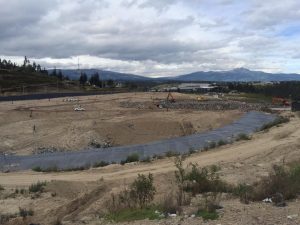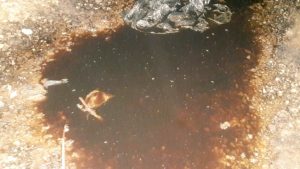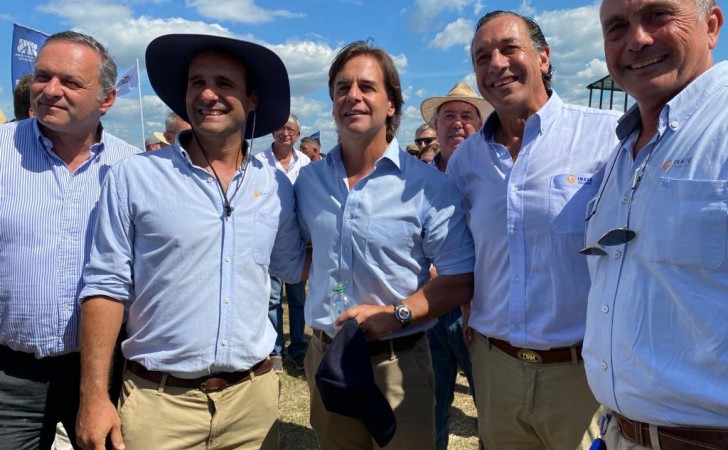Quito does not have a plan for garbage. The technical studies alone would take six months, during which time waste collection would be limited and the city would enter an environmental emergency.
With silence and absencethis is how it handles garbage collapse in Quito.
Silence because the Municipal Company for Comprehensive Solid Waste Management (Emgirs-EP) has indicated that he cannot give statements on the situation of waste management in the capital, while issuing a report about him El Inga Sanitary Landfill. And absence, because although the councilors requested, on March 8, 2022, that the manager of Emgirs, Maricruz Hernandez, appear before him Metropolitan Council, was not on the agenda of the session of March 15. The person in charge of summoning it is the Mayor of Quito, Santigo Guarderas.
a ticking time bomb
The El Inga landfill began to operate in 2003 and, as indicated in past negotiations, with a repowering between 2018 and 2019, its useful life could be extended until 2022. For example, councilor Edward of the Wellduring an interview on Radio Municipal, said that the useful life of the landfill is up to 2024.
while the mayor Omar Cevallos He maintains that the filling no longer has space, that its useful life ends in the coming months. Moreover, it ensures that the bucket 10 (space on the ground where solid waste is placed) no longer has space and the construction of a bucket 11 is not talked about. The 2,200 tons of garbage, says Cevallos, are placed in spaces between the other bucketswhich is not aligned with the environmental standard.
Complaints from residents of the landfill
Marianella Irigoyen, an environmental specialist and researcher, points out that she has received complaints from former workers and residents of El Inga indicating that leachate (liquids that come out of the garbage and that are toxic) they are thrown into the Inga river at dawn and that more garbage is placed inside the treatment pools. LA HORA has sought to contrast these versions, but for two years it has been denied an interview with the managers on duty at Emgirs.
Irigoyen, who was Secretary of Environment in 2019says that for three years there has been a warning about the collapse of the landfill and stresses that corruption and lack of political will they have not allowed Quito to have a better waste management system.
The same is said by Verónica Arias, an environmental and climate expert and former Secretary of the Environment, who pointed out that in the change of administration between Mauricio Rodas and Jorge Yunda, the need to have a process for the construction of a new landfill was noted. “We left the new administration with a budget already budgeted for a study that should be done by 2020,” she says.
For both, the management of garbage in Quito means a time bomb in which the capital could fall into a health emergency where, according to Arias, not all the garbage could be collected and the leachate would end up spilled on the streets. Irigoyen adds that this would not only cause damage to the soil, rivers and air, but also to health, for example, to the respiratory tract.
Two years for a new filling
It more urgent for Quito, says Arias, is to generate the study (with an approximate value $400,000) That would take at least six months. While the construction of a new bucket would take at least a year and a half. Socialization with the community must be added to the process because “no one wants a landfill is its sector”, says Arias.
One of the options, according to Arias, is to build a landfill in front of El Inga or use the quarries of San Antonio de Pichincha “which are holes that have been left there.”
For his part, Irigoyen says that burying garbage is no longer feasible in a city like Quito. He points out that she presented a project, with a nine-month application, to bring to the city a machine with magnets and sensors that separates all the waste and generates usable waste.
“All of Quito’s problems are environmental,” warns Irigoyen, as he points out that it is not just the garbage, but the hillsides and ravines, other points where there is environmental damage.

separation at source
The garbage problem in Quito is generated in all phases. For example, there is no policy for waste to be separated from the source (households).
Arias indicates that one must work in a public-private partnership to help reduce the tons that reach the landfill using organic waste for compostcapturing flammable products so that they are fuels and selling them to the cement companies, dividing the plastics and thus, everything that reaches the landfill decreases.
Irigoyen details that while the waste division culture process is implanted in the citizenry, it is necessary to invest in technology that separates waste. Continuing with the current model, he says, will keep the capital on a constant alert to open and close holes to bury garbage. (AVV)
“For three years we have known that the useful life of the El Inga landfill was coming to an end (…) it is alarming that there is no plan,” Marianella Irigoyen, environmental specialist and researcher.
“We left the new administration (Jorge Yunda’s) already budgeted for a study (new landfill) that should be done by 2020,” Angélica Arias, environmental and climate expert.














